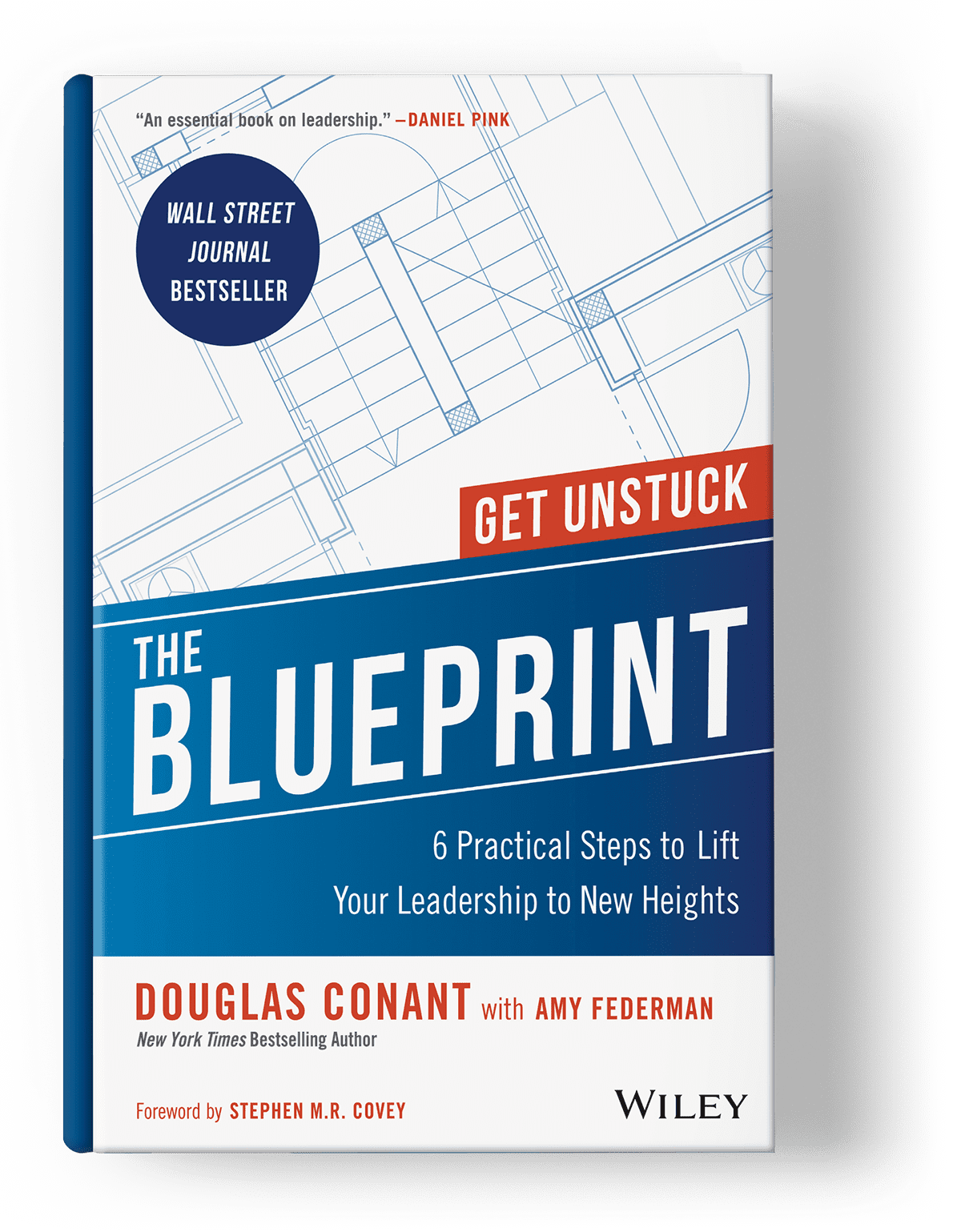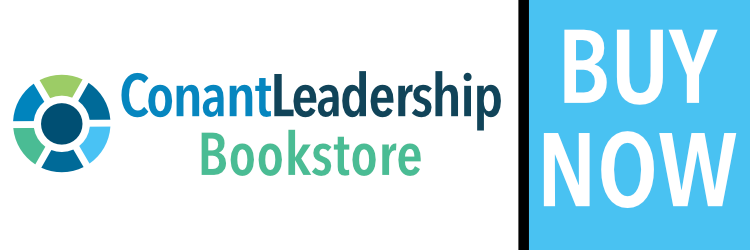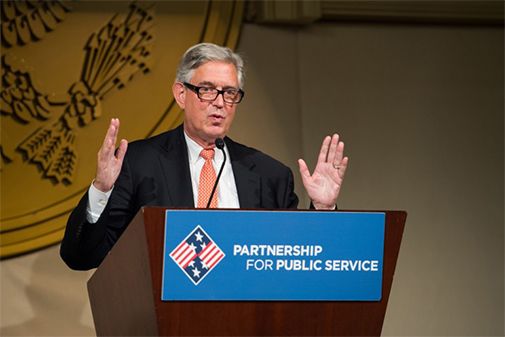In a recent virtual town hall on leadership lessons from the frontlines of the COVID-19 crisis, Dr. Mark Pochapin of NYU Langone Health—in conversation with Doug Conant, Founder and CEO of ConantLeadership—shared illuminating insights that can help us all show up more fully for the people in our lives, no matter our vocation. Dr. Pochapin was on the frontlines of the pandemic, in a leadership role at a busy hospital in New York City at the peak of the crisis, and he has powerful wisdom to impart from that experience. If you’re working to rally a team and keep people energized, consider these four actionable leadership lessons for persevering through crises.
1. Invest in Leadership
A CEO in the nonprofit industry asked Dr. Pochapin the following question (a question we’ve heard frequently from leaders across industries): “How do we convince people to invest in leadership development when there are so many other top priorities in times of crisis?” Dr. Pochapin’s answer was swift and unequivocal, that “leadership is a top priority,” and in fact, “an investment in leadership is actually an investment in crisis intervention.” He explained that if you look at the companies who are thriving right now despite the circumstances, you will always find, “outstanding leadership” at the top; as a result, “leadership training is probably more important than ever.”
If you’re experiencing pushback or resistance, it can be helpful to reframe the conversation from “we can’t afford to develop leaders,” to “we can’t afford not to.” The sooner you make leadership a priority, the better prepared your organization will be to adapt to the next crisis—which is always looming.
Doug Conant, in support of Dr. Pochapin’s advocacy of leadership training, pointed out, “If it’s not COVID-19, it’s economic uncertainty, it’s social unrest, it’s wildfires in California, it’s hurricanes coming to the coast.“ To build an organization that’s equipped to thrive in the face of adversity requires “leaders who have the capacity to lead on demand.” The best time to start developing your leaders is today so you are prepared for whatever tomorrow brings.
2. Kill Fear with Authenticity
For a harrowing period of time earlier in 2020, New York City was ground zero for the pandemic. There was a lot of uncertainty, a limited supply of Personal Protective Equipment (PPE), and a rapidly changing media environment with conflicting reports of what to do and not to do. Doctors had to react on-the-fly to apply their expertise and save lives. But before they could do what needed to be done, explains Dr. Pochapin, they had to first, “address fear,” because “fear was rampant.” People wanted to know what to do and were looking to leaders to guide them through a dark time.
The way to remediate fears was to bring a superior level of authenticity to every communication effort.
That means:
- Communicate with complete transparency but also with hope; “be honest,” but also, “optimistic,” advises Dr. Pochapin. Uplift people with a positive message that you’ll all get through it together. Don’t sugarcoat it. But bring unmistakable clarity—both about the dire scope of the problem and about your confidence that you will see your way beyond it.
- Honor the unique demands of the situation by bringing greater intention to how you show up in the moment. Alter your approach if need be—and make sure to explain why, with greater precision than you might have before. For Dr. Pochapin, that meant adapting his style. He’s usually a more democratic leader who seeks lots of input, but he realized, “I had to become much more directive.” Instead of asking “what do you think?” as he normally would, he had to pivot to, “This is what we’re going to do,” and then explain exactly why that was the right course of action—calmly and clearly.
Infusing his leadership efforts with lucid authenticity soothed fears and allowed people to come together to get the job done; in his words: “truthfully, that’s what people needed.” If you’re facing a tumultuous situation, stamp out panic with straightforward communication. Clarity and credibility win the day.
3. Focus on What You Can Control
In times of crisis, the unknowns can be overwhelming. Circumstances change swiftly, and definitive knowledge can become a scarce resource. A powerful way to lead through uncertainty is to focus on the things you can control rather than belaboring all the things that are out of your hands.
Dr. Pochapin shared, “I can’t control the virus. I can’t control that we don’t have all the information.” But there are numerous things that were in his, and his community’s, sphere of control. He could answer each ambiguous concern with a concrete action that was within their collective power.
- There is incomplete information but, “We can gather information.”
- There are feelings of isolation but, we can come together “with our colleagues.”
- There is not a definitive cure yet but, “We can figure out how to do better in terms of treating patients.”
- There is no clear endpoint (which can cause stress) but, “we can bind together and support each other.”
- There are people who are suffering—but we can celebrate how we are uniquely equipped to help. In Dr. Pochapin’s words: “I am proud to be part of a profession where, really, at its core, it’s about helping others.” He found this was a powerful message to reinforce with his team, “that this is an oath we took as professionals,” and, “we’re not in it alone. We’re in it together.”
By focusing on what was controllable, versus what wasn’t, Dr. Pochapin, and the entire healthcare community, have been proactively able to make great strides in a relatively short period of time. New York City now has one of the lowest infection rates and there are infinitely more “knowns” now than months ago such as, “We have steroids which we actually know work. We know that PPE works. . . being outside, wearing the mask, washing your hands, keeping your distance, those things work.”
The ultimate takeaway? “Anybody who is in a leadership role during this pandemic is emerging a stronger leader by facing it head on, realizing there are things we can’t control, but embracing the things we can control and saying, ‘How can we do better?’”
Focusing on what you can control in crisis is not only productive in moving you towards solutions; it’s also invigorating—offering a balm against despair and inertia. As Dr. Pochapin put it: “There are so many people who felt helpless. But I felt like ‘I’m on the frontlines battling this thing. I literally can do something about this. I’m making a difference.’ That was really energizing.”
4. Lead by Example
Dr. Pochapin, although his specialty is gastroenterology, was tasked with an all-hands-on-deck recruitment effort in his leadership role at NYU Langone. Everyone needed to come together to focus on one shared goal: fighting COVID-19. And it’s a task rife with real risks. How could he ask people to put their lives on the line if he wasn’t willing to publicly do the same? It was crucial to model the desired behavior with his own actions.
Dr. Pochapin shared, “I’m approaching 60, and we know that 60 is an inflection mark where if you get this virus, you have a higher mortality,” but that was not going to stop him from charging headfirst into the work so he could persuade others in kind. He had to ask all the doctors with diverse areas of expertise to “stop doing dermatology, stop being a plastic surgeon, stop being an ophthalmologist, and come work with me in the hospital caring for COVID patients.” And they all went in together.
Dr. Pochapin felt he needed to be an example not just to his fellow doctors, but to the frontline workers he calls, “unsung heroes,” the “nurses, the people serving the food, the people cleaning the rooms. They’re putting themselves even at more risk in many ways,” than the doctors. If you’re asking them to put themselves in danger, you have to do the same to show you value their contribution—and their life—as much as your own.
The lesson is that change starts with you. No matter what leadership challenge you’re grappling with, if you want to build a coalition, grow a team, or get people in the trenches with you—you have to jump in first and show the way.
Putting It All Together
In times of crisis, leadership is more important than ever. The more unpredictability and volatility a situation presents, the more urgent the need for leaders who are grounded in a strong foundation—leaders who know who they are, know how they can help, and know what they need to do to bring others along.
To lead effectively no matter the catastrophe, and no matter your area of expertise, you can get better results by applying these four guiding behaviors from Dr. Mark Pochapin:
1. Invest in Leadership
2. Kill Fear with Authenticity
3. Focus on What You Can Control
4. Lead by Example
To learn more of Dr. Pochapin’s leadership lessons from the frontlines of the COVID-19 crisis, watch the full virtual town hall here (To skip housekeeping and intros, fast forward to 00:02:15).
Enjoyed these lessons and ready to take your leadership to the next level?
- Build your own powerful leadership foundation by reading The Blueprint, our practical 6-step guide for lifting your leadership to new heights | A Wall Street Journal and Publisher’s Weekly bestseller
- Join us at an upcoming BLUEPRINT Boot Camp by ConantLeadership, an elite and highly interactive leadership development experience—now in an accessible virtual format
- Engage with our high-impact suite of leadership resources






0 Comments